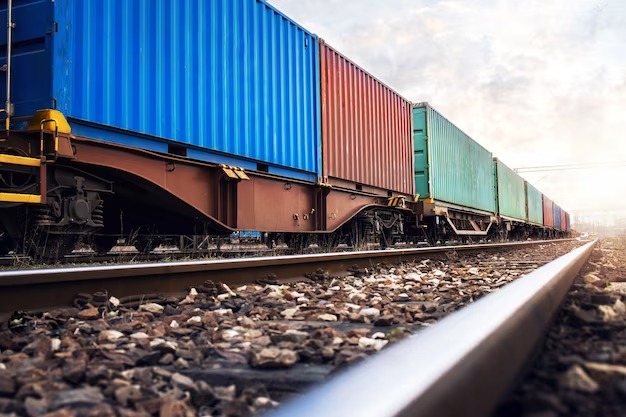BEST Solutions for Railroad Cargo Transport

Railroad Transport: The Life Blood of American Commerce
Rail freight moves 10 billion+ tons of goods and products around the U.S. annually, making it vital to the United States economy. Boxcars carry anything—from cars, lumber, packaged goods, beverages, heavy equipment, and other palletized freight. While some commodities are packaged in heavy-duty plastic bags or steel drums, recycled cardboard is superior to protect and package goods to avoid damage during transport.
While cardboard offers many benefits for logistics companies and the environment (i.e., being versatile, recyclable, biodegradable, and compostable), it holds hidden dangers overlooked during transport. In particular, cardboard is:
Vulnerable to moisture. Even slight moisture exposure can damage cardboard and, in turn, the goods inside. It also encourages mold growth, leading to contamination or damage.
Susceptible to friction. It is prone to wear and tear, reducing sturdiness and making it prone to damage during handling. And collapse can cause huge damage and losses.
Often discarded after only once. This can lead to disposal and environmental issues.
A fire hazard. According to the Federal Railroad Administration, several incidents of fire originated from cardboard, causing catastrophic damage leading to huge losses.

The BEST Solution
Through a proprietary chemical process that molecularly binds with cellulose fibers, BEST can “lock the fibers,” making them resistant to moisture. By preventing absorption, BEST treatment helps to maintain structural integrity and strength.
Along with this resistance, BEST’s process alters natural fibers in such a manner as to allow air to pass through the material, making material breathable and further removing threats of moisture damage.
BEST is developing new cellulosic fiber-based products that allow for reduced consumption, while increasing reusability and recyclability—at a fraction of the cost of traditional products.
Rail and logistics companies need to explore alternative materials that are more durable, moisture-resistant, and fire-resistant to ensure the cargo safety. Working with BEST will allow these companies to be better stewards of our environment, while reducing costs and strain on our natural resources.
